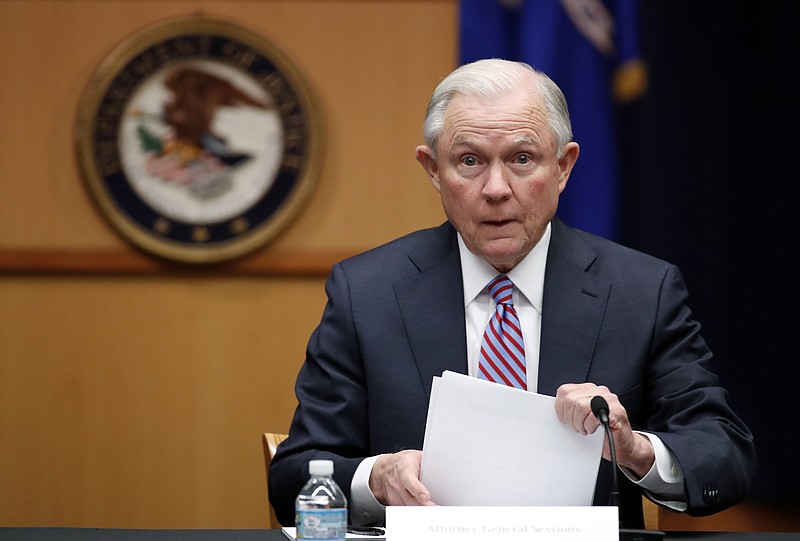WASHINGTON - Imagine if I began a column about Attorney General Jeff Sessions this way: "I really am amazed that an attorney general who hails from a former Confederate state in the Deep South can issue a series of orders wrecking efforts to reform police practices, cutting back on voting rights and restarting the war on drugs."
The specifics of what Sessions is up to are accurate, but that knock on the land of cotton would leave my inbox bulging with rebukes to bigotry against Dixie, and I'd probably get many YouTube links to Lynyrd Skynyrd singing "Sweet Home Alabama." (Don't go to the trouble. I already have the song on my iPhone.)
Yet the man whose job is to be the top lawyer for all of us said something very similar about a federal judge in Hawaii who blocked President Trump's travel ban. For the record, here is Sessions' islophobic sentence:

"I really am amazed that a judge sitting on an island in the Pacific can issue an order that stops the president of the United States from what appears to be clearly his statutory and constitutional power."
The obvious problem in Sessions' comments, made to conservative talk show host Mark Levin, is that Hawaii is a state like every other and has been in the union for 58 years. Are newer states inferior to older ones?
There is also the Trump administration habit of trying to discredit any judge who rules against it. Members of the executive branch have every right to criticize and appeal lower-court decisions, but what Sessions suggested is that Derrick Watson, the federal judge in question, somehow lost his right to rule because of where his court is located.
Hawaii has been a special place in conservative demonology because many on the right, once they had to concede that President Obama was actually born there and not in Kenya, wanted to hold on to the idea that he came into the world in a location that was, well, different.
And Sessions may have picked up his anti-Hawaii cues from right-wing media, which reported that Obama had "unexpectedly" flown alone to Hawaii on March 13, two days before Watson issued his ruling, and that Watson just happened to go to Harvard Law School with the former president.
The conservativetreehouse.com blog asked: "Coincidences? Or did President Obama travel to Hawaii to initiate, facilitate, or participate in the decision by Judge Watson?" On March 16, Rush Limbaugh got the story out there and then insisted that he wouldn't traffic in speculation.
Here's one good thing that could come from Sessions' aloha-baiting: It might start focusing attention on the rest of that opening sentence and the damage the attorney general is inflicting.
Sessions has started switching the Justice Department's stance on voting rights cases, away from minority plaintiffs and in favor of states that passed discriminatory measures such as voter ID laws restricting access to the ballot.
Sessions also ordered department officials to review reform agreements between its civil rights division and troubled police forces nationwide, an Obama-era initiative aimed at restoring community confidence in the police after a series of shootings of unarmed black men.
Jonathan Smith, executive director of the Washington Lawyers' Committee for Civil Rights and Urban Affairs, called the move "terrifying," but in a USA Today op-ed last week, Sessions invoked classic law-and-order rhetoric, saying he would "not sign consent decrees for political expediency that will cost more lives by handcuffing the police instead of the criminals."
You don't have to live on an island to worry about what Sessions is doing in the name of justice.
Washington Post Writers Group
